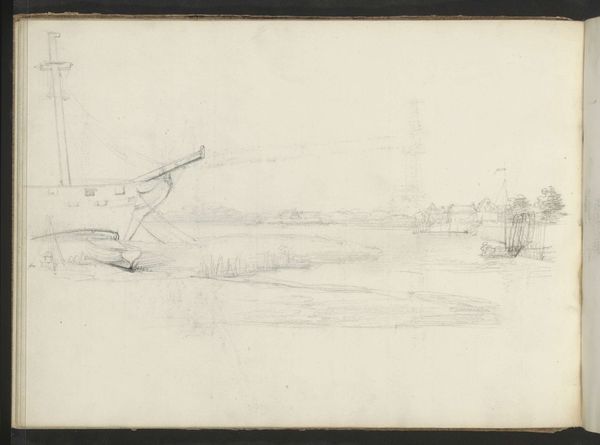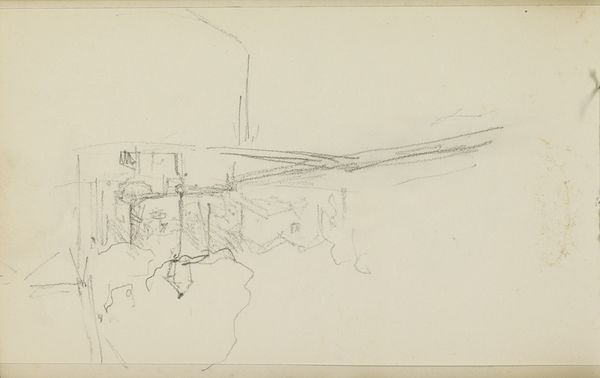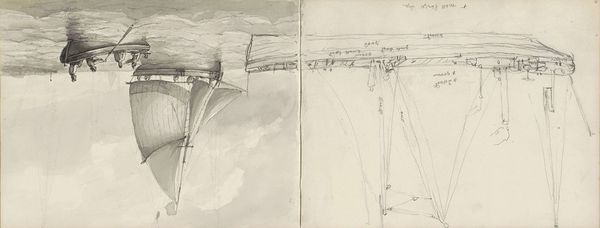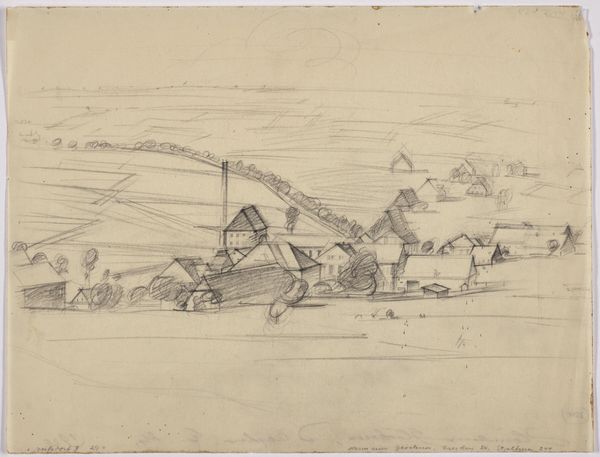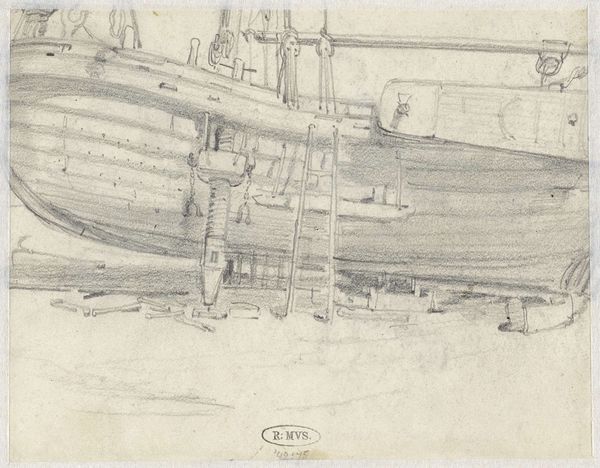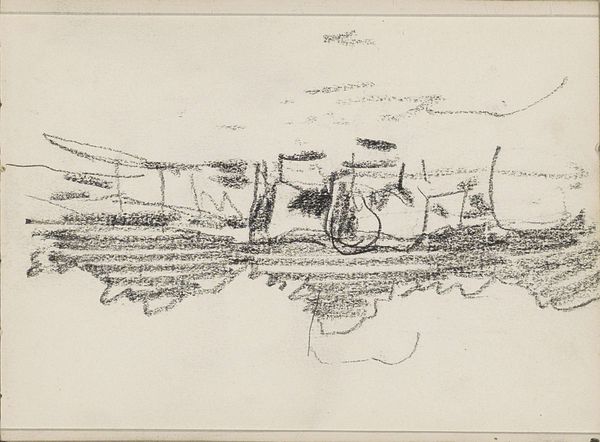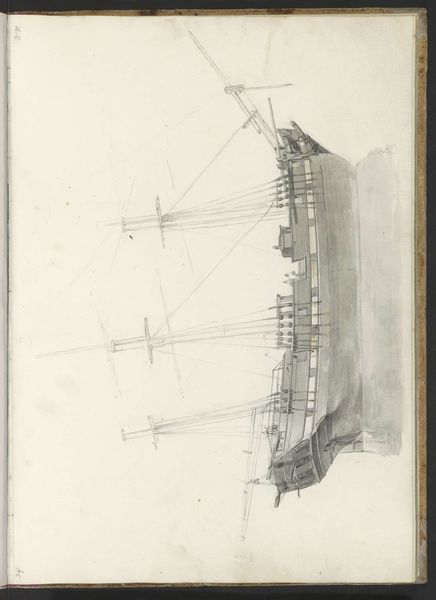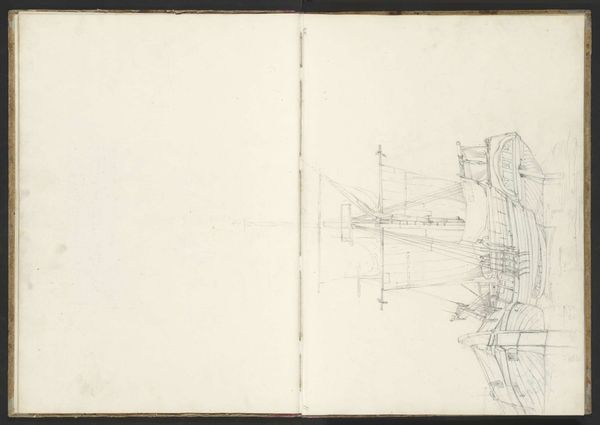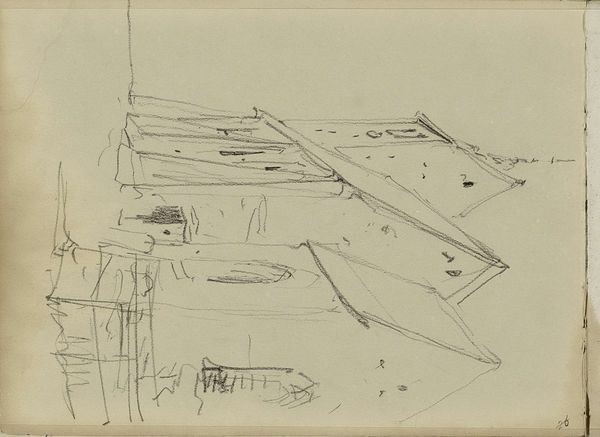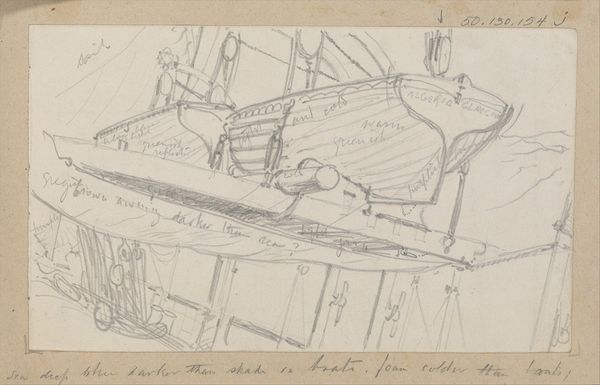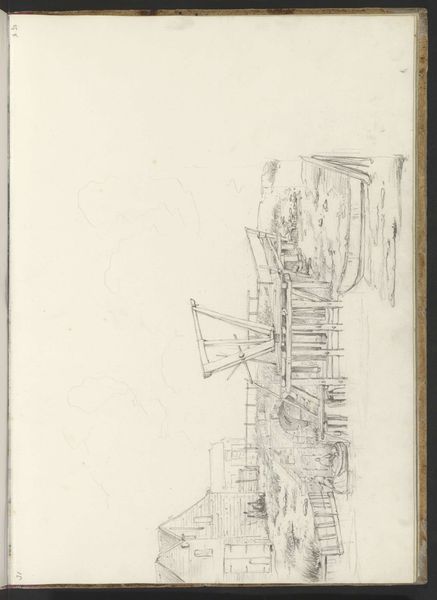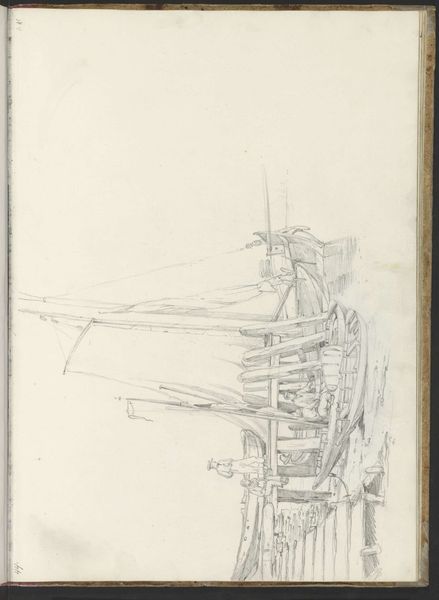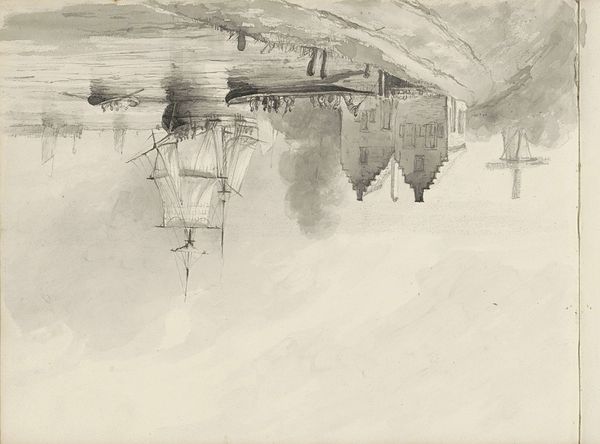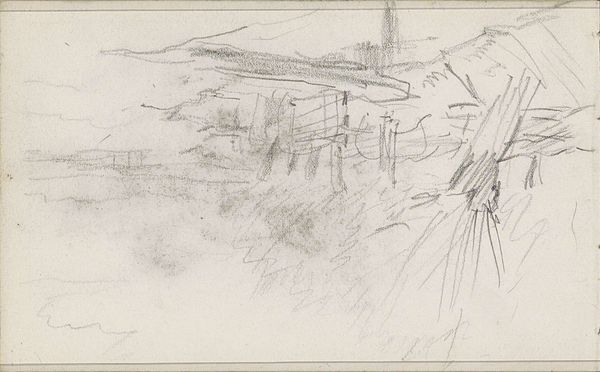
drawing, pencil
#
drawing
#
pencil sketch
#
landscape
#
form
#
romanticism
#
pencil
#
line
Copyright: Rijks Museum: Open Domain
Curator: Here we have Petrus Johannes Schotel's "Driemaster op zee," which translates to "Three-Master at Sea," likely created sometime between 1825 and 1875. It’s a pencil drawing, showcasing his masterful skill in capturing maritime scenes. Editor: Oh, it's ghostly! The monochrome gives it such a serene, almost dreamlike quality. It feels less like a specific vessel and more like the *idea* of a sailing ship, fading into the mist. Curator: Indeed. Schotel's work often romanticized the Dutch maritime past, and this piece certainly taps into that vein. While it's a sketch, notice how he uses line and shading to suggest form and movement of this vessel gliding atop the waves. Consider the period as well: the Netherlands experienced major shifts in shipping and naval power at this time. A reminder of times past, perhaps. Editor: It's fascinating to think about how something as utilitarian as a ship can become a symbol of national identity and aspiration. There's this dance between historical document and imaginative projection happening. Does this feel more to you like the artist trying to capture a specific ship or a fleeting memory? It almost has a sense of wistful yearning for a bygone era. Curator: It's both! It shows how institutions, such as the Dutch navy or the Rijksmuseum itself where this work now resides, solidify those ideas and make art a vehicle for historical narratives, selective narratives, really. These maritime drawings were important historical records. And Schotel being well-regarded elevated the genre. Editor: Absolutely! There's a definite sense of framing the sea not just as a space for trade or conquest, but as this realm of possibility and perhaps, the melancholy understanding of that realm changing over time. The stark contrast evokes isolation amidst the vastness of nature's open water, it could speak volumes without depicting human presence! Curator: Looking closely, I wonder if he ever thought someone nearly two centuries later would look at his pencil sketch now safely inside the Rijksmuseum, with completely different eyes than his own. Editor: It makes you think doesn't it!
Comments
No comments
Be the first to comment and join the conversation on the ultimate creative platform.
